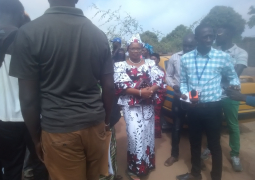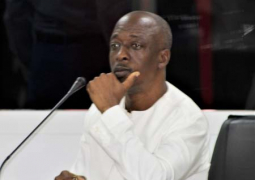
VP Jallow said the master plan has come at a time when the Gambia government just completed the second recovery focus national development plan which recognises the livestock subsector as a prime asset and renewable resource that creates opportunities to reduce poverty, create employment, reduce food insecurity, malnutrition, and increase income-generated activities, particularly for rural households.
“The livestock sector contributes significantly to the socio-economic development of The Gambia,” the vice president stated.
Speaking on the challenges of the sector, VP Jallow said the livestock sector “faces production challenges” which include but are not limited to lack of access to feed, disease outbreaks, limited veterinary services, and low levels of market linkages.
“These impact the achievements of sufficient growth in domestic production to meet the rising future demand for animal foods,” he posited.
He added that the Gambia government through the Ministry of Agriculture with support from the Islamic Development Bank had commissioned a study to address some of the challenges of the livestock subsector.
Agriculture minister Demba Sabally expressed gratitude to the government for launching the Livestock Master Plan for “the first time in The Gambia”.
Minister Sabally said: “The Livestock Master Plan will improve animal health care delivery and reduce the negative impact of animal diseases and focus on the development and strengthening of institutional structures (public and private) for animal health, the development of human resources to fill the acute shortage of veterinarians and laboratory scientists and technicians and strengthening the epidemic surveillance system and establishing an early warning system and emergency preparedness.”
Ebrima Jallow, president of the National Livestock Owners Association, in his statement on the occasion, said “the master plan has left no animal behind” and thanked the Ministry of Agriculture for foreseeing such a project.
Read Other Articles In Headlines




